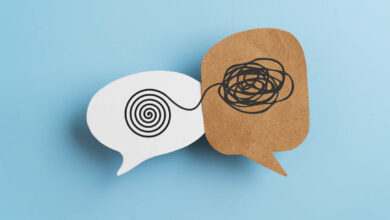
Tone, body language, and effort. This is what your customers want.
I walked out of a franchise business last week, and I won’t go back. The reason is that I don’t believe they want my business. There is also another franchise 5 miles away that does the same thing and maybe they deserve my business more.
Disingenuousness
Big word, big deal. The act of being disingenuous — not candid or sincere, typically by pretending that one knows less about something than one really does. You’ve probably experienced this in several places. The most popular of which is telecommunications customer service lines: “Thank you for calling XXXX, your call is very important to us. Your wait time is approximately 45 minutes to 1 hour.”
You know by their actions that they don’t believe this. If they did, they would staff their call center to handle the incoming demand. When you do get a human, their plastic regurgitation of the marketing department can be even more infuriating: “Thank you for calling XXXX, I’m happy to assist you.”
Are they really? Or is this just a job to them? I would be OK with a more candid answer: “My name is XXXX, I will try to understand and handle your issue as efficiently as possible.” Because that’s what I want. I’m calling you because your website/service/documentation/retail agent has failed to solve a problem I have with your products and services. I need a human to fix it on your side.
None is better than fake
When you onboard a new associate at your shop, talk about the importance of tone of voice and body language. People hate to be lied to. Don’t recite a sales script if you don’t understand it or believe it. As part of your training program, discuss things like customer service and why the customer is critical to being in business. The most important component of good customer service is the understanding of the relationship. The employee is there to serve the customer. It’s right there in the name.
-
- What can I do for you?
- How can I help you solve a problem?
Ask this question
During a performance review or an interview, ask this simple question: “Who pays your paycheck?” If the associate responds with anything other than “the customer” they don’t understand why they are there. Give a brief description of the business model so the employee knows how the business works. Many entry-level jobs never explain this and as a result, employees are completely oblivious as to how economies work and how a business operates. That lack of understanding turns into apathy. Apathy kills your business.
Focus on the little things
I can think of three specific events that speak to the power of little actions that yield great consequences.
- An older gentleman brought his malfunctioning iPhone in to speak to an Apple genius. His hesitance to explain the problem told me he felt guilty about it. The store clerk didn’t use any flowery customer service language, just a simple “How can I help?” with a smile. After explaining the problem, the man asked the clerk, “Is it something I did?” The clerk gave one of the best answers I’ve ever heard: “It doesn’t really matter, does it? We’re gonna take care of it.”
- While walking through a home improvement warehouse, I saw a customer stop an associate and ask where a particular item could be located. The associate said, “I’ll walk with you.” The customer replied, “Wow, they usually just point.” The associate smiled and said, “It won’t take long, and I want to make sure you get what you need.”
- My mother was leaving Costco one day and complimented an associate’s hair. The associate burst into tears. My mother started to get nervous until the associate composed herself and said, “I’m sorry, but I needed that. Thank you.”
A small wave to acknowledge a customer in the parking lot, or, if they don’t need help, remind them you will check in on them to see if anything changes. Small gestures do greater efforts than a polished script or a recital of the company’s mission statement.
The importance of welcome and thank you
I knew a sales coach whose favorite story to tell was around the use of the word welcome. He traveled 300 days a year for his consulting business so he went through his fair share of hotel rooms. He walked around with $300 in five-dollar bills in his pocket. He would show you the cash if you asked. Every time he walked into a hotel, he would hand $5 to everyone that said welcome. The last time I spoke to him, he gave out $25 and it was October.
He started doing the same thing for “thank you” and he gave away a lot more money.
Even the tiniest gestures matter in customer service
Smile with your eyes, give a wave, acknowledge the existence of others. It’s good humanity, as well as good customer service. You never know what someone is going through in their own life and your business will thrive because of it. If you can’t provide a stellar customer experience, at least give an honest one and use small techniques to get the job done. Sometimes providing an excellent customer experience is by making sure to avoid giving a poor one by mistake.



